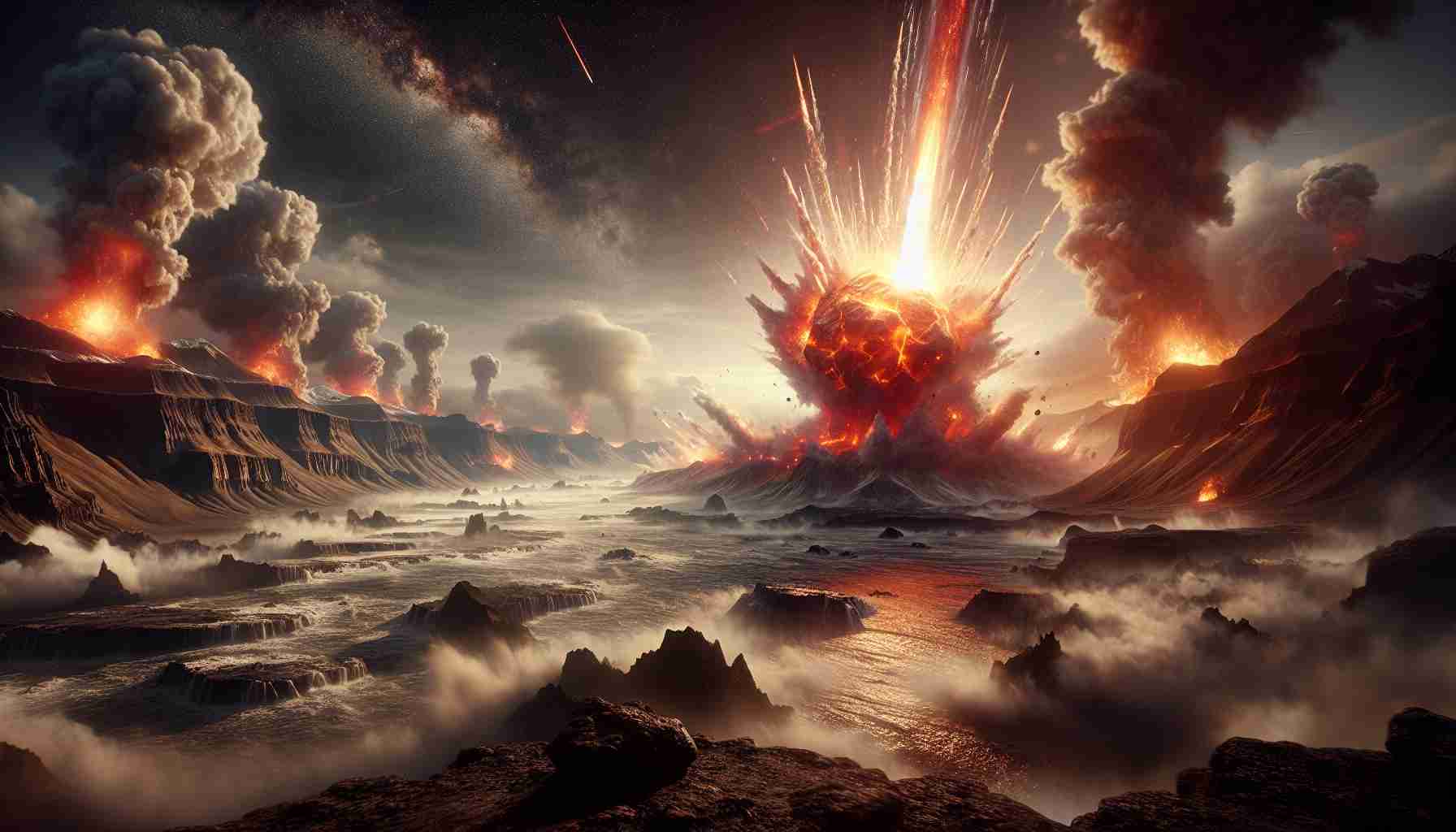In the realm of celestial wonders, a remarkable discovery sheds new light on the dramatic events that shaped early Earth. A recent study suggests a monumental cosmic impact may have set the stage for life’s beginnings billions of years ago.
Researchers have undertaken a detailed investigation into an ancient meteorite’s collision with Earth, having collected over 200 pounds of rock samples for analysis. This titanic impact event triggered a global tsunami, reshaping the planet’s atmosphere and oceans. As massive waves churned up essential nutrients like iron and phosphorus, Earth’s marine ecosystems experienced significant shifts.
The impact was not without consequence; shallow-water organisms contended with darkness and partial evaporation, yet life in deeper waters remained relatively unaffected. Importantly, the infusion of iron-rich waters catalyzed conditions favorable for early life emergence. While iron is essential for many living organisms, only a few, such as certain bacteria, have adapted to survive without it.
Unexpectedly, this investigation has captivated both the scientific community and the public, engaging them with Earth’s ancient mysteries. Enthusiasm is particularly piqued by the evidence of complex organic molecules found within the meteorite debris. This finding hints at the potential delivery of prebiotic material to our planet from far reaches of the cosmos, prompting debates about the origins of life.
Ongoing discussions center around the mysterious origins of the space rock and the vast journey it undertook before its Earthly collision. As researchers continue to decipher these ancient events, new insights into Earth’s formative years could forever alter our understanding of how life began on our blue planet.
 The Winning Formula: How BlackRock’s Innovations Power Through Market Uncertainty
The Winning Formula: How BlackRock’s Innovations Power Through Market Uncertainty  How many passenger planes fly per day?
How many passenger planes fly per day?  Paris Celebrates the Arrival of the Olympic Games with Rings on the Eiffel Tower
Paris Celebrates the Arrival of the Olympic Games with Rings on the Eiffel Tower  A Flavor Revolution: Discover the Bold New Black Sesame SOYJOY and Its Innovative Uses
A Flavor Revolution: Discover the Bold New Black Sesame SOYJOY and Its Innovative Uses  Governor Energizes Enthusiasm with a Grand Gesture for Super Eagles Fans
Governor Energizes Enthusiasm with a Grand Gesture for Super Eagles Fans  How many people died during the construction of the Empire State Building?
How many people died during the construction of the Empire State Building?  The Rising Stars of Tennis: Arthur Fils and João Fonseca Shine at Miami Masters
The Rising Stars of Tennis: Arthur Fils and João Fonseca Shine at Miami Masters  Spain’s National Team Faces High-Stakes Clash: Redemption and Rivalry in the Heart of Mestalla
Spain’s National Team Faces High-Stakes Clash: Redemption and Rivalry in the Heart of Mestalla  How many cruise ships sink per year?
How many cruise ships sink per year? 